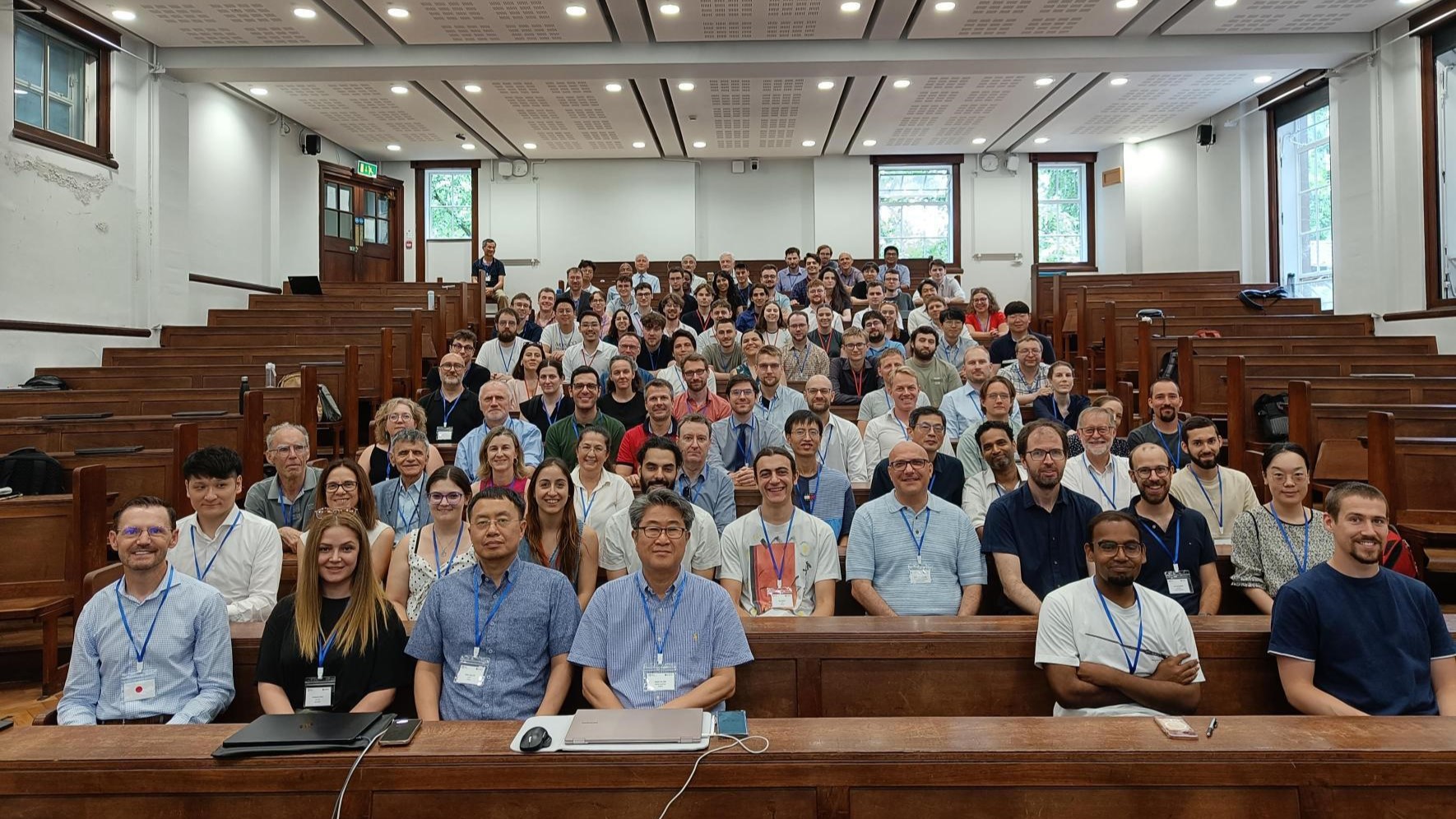The development of advanced reactor concepts and the deployment of multiphysics simulation capabilities require rigorous verification, validation and uncertainty quantification (VVUQ) procedures, along with international benchmarking initiatives. These topics were at the heart of the Working Party on Scientific Issues and Uncertainty Analysis of Reactor Systems (WPRS) Benchmarks Workshops event held from 30 June to 4 July 2025. Organised by the Working Party on Scientific Issues and Uncertainty Analysis of Reactor Systems (WPRS) under the auspices of the NEA Nuclear Science Committee and hosted by the Department of Engineering at the University of Cambridge in collaboration with the Cambridge Nuclear Energy Centre, the event took place at the University of Cambridge, United Kingdom.
A total of 302 participants (145 in person) from 27 countries gathered over five days in three parallel tracks to discuss the progress made in the NEA benchmark activities in the domains of neutronics, thermal-hydraulics, fuel performance and multiphysics. The event showcased the wide range of WPRS benchmark activities, including benchmarks for light-water-cooled reactors, high-temperature gas-cooled reactors, lead- and sodium-cooled fast reactors, fluoride-salt-cooled high-temperature reactors and molten-salt reactor systems. Participants represented government organisations (102 participants), academia (110 participants), and the private sector (90 participants), underscoring the significant role the WPRS plays in international VVUQ activities for reactor systems across all domains. The event also included the third edition of the International School on Simulation of Nuclear Reactor Systems (SINUS), where the next generation of experts is trained in VVUQ for multiphysics modelling and simulation.
Highlights of the event included the launch of two new benchmark activities and engaging discussions on benchmarking of artificial intelligence (AI) and machine learning applications. The first new benchmark activity will address the simulation of light-water-cooled small modular reactors (SMRs). The second new benchmark will investigate the state-of-the-art of neutron fluence assessments for the reactor pressure vessel (RPV), a key parameter for analysing the aging of the RPV and, thus, of utmost importance when evaluating a plant’s lifetime extension.
The event also featured topical sessions on transient simulation capabilities and on the challenges of modelling and simulating light-water-cooled SMRs. It encouraged meaningful dialogue between experts and SINUS students on how the reactor physics community can tackle future questions. A dedicated session on developing a new molten salt reactor benchmark highlighted key discussions around the needs of the private sector. The exceptional attendance and vibrant discussions throughout the meeting reaffirmed the growing role of the WPRS Benchmarks Workshops as a centre of gravity for the reactor physics community.

